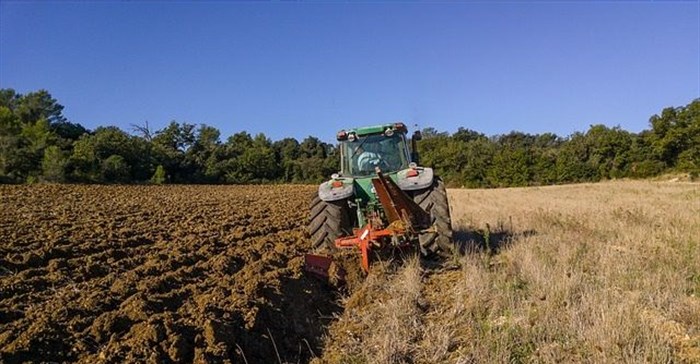






Ironically though, calls for ‘expropriation without compensation’ did not originate from the voices who have reason to be aggrieved, but came from the very same people who have been dragging their feet on land reform for the past 23 years.
During the State of the Nation address in February, the President of the Republic stated that ‘a single law should be developed to address the issue of ‘land restitution without compensation’. This was followed by the Minister of Rural Development and Land Reform who stated that ‘expropriation without compensation’ is an aspiration, but not government policy. It may not be official policy, but when the topic is raised by the head of state and the minister of the Department responsible for land reform, one should pay serious attention to it.
The KZN Executive Committee of the ruling party (ANC) subsequently tabled the issue for resolution at the policy conference in June 2017, and a decision on the matter has been postponed to the elective conference in December 2017. Since this matter is now open for discussion, there are a few undeniable facts that should be considered by the powers that be when deliberating on this matter.
First and foremost, it is a myth that the property clause in the Constitution is the reason why land reform has progressed as slowly as it has. Land reform is funded by the fiscus, so the affluent who pay the most taxes are already paying for land reform, albeit indirectly. Nowhere in the history of the programme has the beneficiary been expected to carry the costs.
In 2017, the fiscus made R10.184bn available to the department responsible for land reform. At a recent Portfolio Committee meeting, it was revealed that the budget had been underspent by 56.3% midway through the year, and the department has only managed to achieve 14% of its target as far as land reform is concerned. A good start to accelerate land reform would be to spend more than half of the budget and then leverage the private sector to obtain more funds and streamline the process.
Taking land without compensation will also have a knock-on effect that is likely to affect those the land reform programme is supposed to benefit the most. Agriculture is very reliant on bond financing to buy inputs necessary to produce food for the nation. Total agricultural debt is currently estimated at R160bn, with the majority secured by mortgage bonds over the land. If the land is taken without compensation, farmers will not be able to repay the debt and banks will not be able to sell the land to recover their losses either.
One should remember that banks do not have their own money to invest, but use the money which ordinary citizens have deposited in the bank to loan out and earn interest for its depositors. As a result, the majority of the funds deposited are tied up into investments. If ‘expropriation without compensation’ takes place, the R160bn tied up in agricultural investments could be lost and the banks will suffer major losses.
If news spreads that the banks are losing great sums of money, it could trigger what is known as a ‘run’ on the banks, whereby concerned depositors try to withdraw all of their funds from the bank. Because banks use money deposited by their clients to fund investments, they do not have enough liquid funds to pay out all of their clients wanting to withdraw at once. This snowball effect can plunge a bank into greater financial difficulty and pull the entire economy down with it, as was the case during the great depression and the global financial crisis of 2008. In theory, then, expropriation without compensation can lead to the downfall of the entire economy.
The damage will also be felt by aspirant farmers as banks will have no choice but to adopt an extremely conservative approach in lending to the sector. This will likely mean that the established farmers with a favourable credit history may still be able to access finance, whilst new, aspirant farmers who receive land under the land reform programme may struggle to access finance. The great irony is that it will hurt the emerging farmers that are intended to benefit from the programme most as they will receive a worthless asset if the inherent value of land is destroyed.
Next, if farmers can no longer access credit to produce sufficient food to meet its needs, South Africa will be forced to import food to make up the shortfall. Currently, South Africa is a net exporter of a basic food commodity such as maize, but if we become a net importer, we will be forced to produce food from grains bought at import parity price. This means that the price of a basic food basket will increase dramatically. We have recently seen the effects that such a scenario could have as the price of a basic food basket increased by between 20 and 30% when we had to import many food items during the height of the recent drought. As always, a hike in food prices disproportionally affects the poor and marginalised in society.
Finally, it must be stated that there are alternatives that have not been meaningfully explored. Our current constitution does make provision for land to be expropriated subject to ‘just and equitable’ compensation. ‘Just and equitable’ is a flexible formulation that is designed to treat each person fairly based on the facts of each individual case. The formulation was specifically crafted to cater for our unique history of land dispossession and allows the ‘history of acquisition of the property’ as well as the ‘purpose of the expropriation’ to be taken into account when arriving at a fair amount of compensation. This power in the Constitution has not been meaningfully used nor tested by the state to date, so it would be premature to consider amendments to the Constitution. How can one say that the provision does not work if it has never even been tried?
Finally, the private sector is ready and enabled to do its part to assist the government. Agbiz and the Banking Association South Africa have developed a hybridised funding model to accelerate land reform based on the model of a public-private partnership. Through various instruments such as interest subsidies, ‘soft loans’ can be provided to land reform beneficiaries by reducing the risk of lending. This will allow the government to effectively double-up on its funds and unlock the skills and human capital within the private sector to ensure sustainable land reform. The private sector is ready and raring to go, all it needs is for the government to meet it halfway.
Agbiz